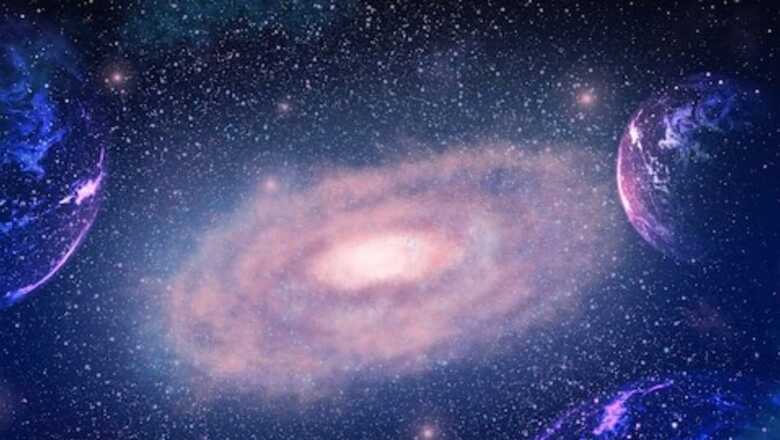
views
After the discovery of Higgs Boson particle in 2012, scientists have been excited to unravel the “dark secrets” of the universe. No wonder, CERN – the home to world’s largest particle physics laboratory – is now putting forth a proposal for a new and much larger supercollider, which will find new particles that can lead to a complete understanding of how the universe works.
The new machine called the Future Circular Collider (FCC) is a successor to Large Hadron Collider (LHC), which sits in a tunnel beneath the ground near Geneva, Switzerland.
The FCC would begin construction in 2040s, and have a circumference of more than 56 miles (90 km). Its goal is to “push the energy and intensify frontiers of particle colliders”.
This supercollider can consume electricity as much as a medium-sized city, according to CERN, but would use “one-sixth of the energy of its most power-intensive rivals to achieve the same physical goals”.
FCC’s carbon footprint would be just 1% of the most polluting alternative, claims CERN.
But why is there a need for a £1.2 billion ($1.5 billion) supercollider?
Cern’s director general, Prof Fabiola Gianotti, told BBC News, “It is a tool that will allow humanity to make enormous steps forwards in answering questions in fundamental physics about our knowledge of the Universe. And to do that we need a more powerful instrument to address these questions”.
The scientists still have not found particles that will help explain 95% of the universe, the dark energy that is opposite to gravity, and drives objects in the universe such as galaxies apart, and dark matter, which is elusive, but its presence can be felt through gravity.
The FCC is proposed to be built into phases: It will begin operating in mid-2040s and will collide electrons together. The increased energy will produce large number of Higgs particles for scientists to study in detail.
The second stage will begin in the 2070s and require more powerful magnets, and heavier protons instead of electrons will be used in search of brand new particles.
Controversy Around Supercollider
The scientists at CERN had predicted 20 years ago that LHC would find mysterious particles that will help understand the functioning of the universe, but it didn’t.
Many scientific advisers have also criticised the need to build the next supercollider when the world is already dealing with the threat of climate emergency.
Critics such as Dr Sabine Hossenfelder of Munich Center for Mathematical Philosophy told BBC there is no guarantee that the next supercollider, FCC, would succeed.
Does Higgs Boson Really Exist?
According to Stephen Reucroft in the Elementary Particle Physics group at Northeastern University, as quoted by Scientific American, “Over the past few decades, particle physicists have developed an elegant theoretical model (the Standard Model) that gives a framework for our current understanding of the fundamental particles and forces of nature. One major ingredient in this model is a hypothetical, ubiquitous quantum field that is supposed to be responsible for giving particles their masses (this field would answer the basic question of why particles have the masses they do–or indeed, why they have any mass at all). This field is called the Higgs field. As a consequence of wave-particle duality, all quantum fields have a fundamental particle associated with them. The particle associated with the Higgs field is called the Higgs boson.
Because the Higgs field would be responsible for mass, the very fact that the fundamental particles do have mass is regarded by many physicists as an indication of the existence of the Higgs field. We can even take all our data on particle physics data and interpret them in terms of the mass of a hypothetical Higgs boson. In other words, if we assume that the Higgs boson exists, we can infer its mass based on the effect it would have on the properties of other particles and fields. We have not yet truly proved that the Higgs boson exists, however. One of the main aims of particle physics over the next couple of decades is to prove once and for all the existence or nonexistence of the Higgs boson.”


















Comments
0 comment